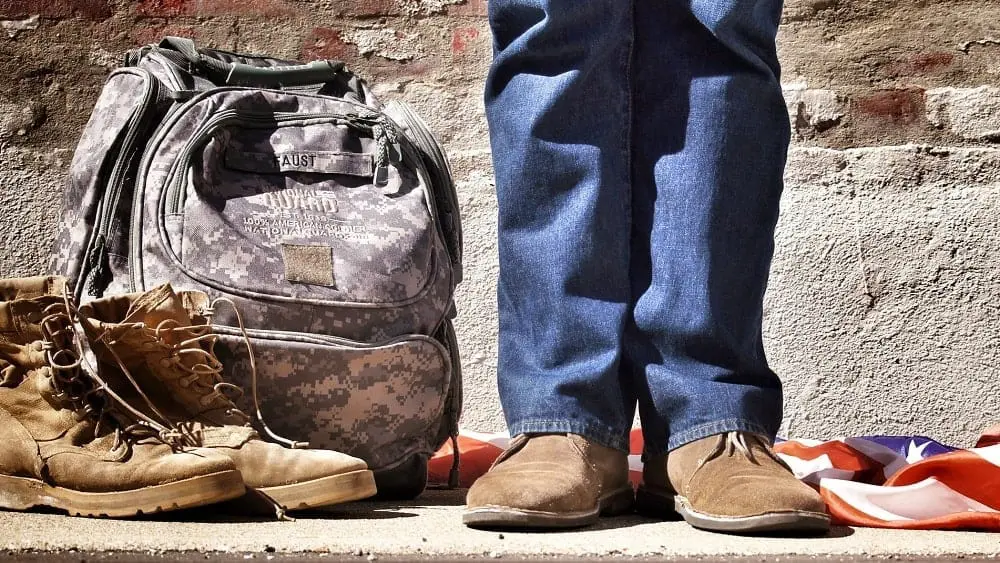
Not all veterans and their families realize that they can use VA financing for more than an existing home: They can use it to build their dream home.
“Building a home with a VA loan shouldn’t be a rare occurrence, but until last year there was limited information about how to use VA financing for a custom home,” says John Bell III, the deputy director of the loan guaranty service for the U.S. Department of Veterans Affairs in Washington, D.C. “While the program hasn’t changed, we developed more complete guidance for our lenders.”
VA loan guarantees are one of the best ways the federal government says “thank you for your service” to those who have served their country. Among the primary benefits of the VA loan program is that eligible veterans and active military personnel may qualify for a mortgage with a zero down payment requirement.
VA Loan Eligibility and Qualifications
The VA department doesn’t issue loans directly; the agency provides a loan guaranty to lenders.
“Most people search first for a VA lender who will walk them through their eligibility,” says Winston Wilkinson, executive vice president and president of mortgage banking for PenFed Credit Union in McLean, Va. “There are eligibility rules, such as needing 90 consecutive days of service during active wartime or 181 consecutive days during peacetime or six years in the National Guard.”
More than 96 percent of eligibility certificates are issued online, 65 percent of them instantaneously, says Bell.
VA loans are popular for eligible borrowers because of the lack of a down payment requirement in most circumstances. In addition, borrowers don’t have to pay mortgage insurance, which helps keep payments lower. Borrowers must pay a funding fee, which can typically be financed into the loan, says Wilkinson.
The funding fee for a VA loan ranges from 1.25 percent to 3.3 percent of the loan amount depending on whether a down payment is made and whether the borrower has previously used VA financing. The fee is often waived for servicepeople with a disability, Wilkinson says.
He adds that VA mortgage rates are generally a little lower than the rates on conventional loans and the rates are the same regardless of your credit score.
VA borrowers must demonstrate their ability to repay the loan, so Wilkinson recommends gathering all income and asset information, such as bank statements and proof of employment, before consulting a VA lender.
Borrowers typically need a minimum FICO credit score of 620 and must wait at least two years after a Chapter 7 bankruptcy and three years after a foreclosure to qualify for a VA loan, says Jerry Thomas, a construction loan officer with Cranbrook Loans in Clinton Township, Mich.
VA Construction Loan Options
Custom home financing through conventional loan programs can be a one-time closing loan, sometimes called a construction-to-permanent loan, or a two-time closing, which means you’re financing the construction and the purchase separately.
“Borrowers can use a VA loan for the entire process if they choose a one-time closing loan,” Bell says. “If someone prefers to finance the land and construction separately from the purchase with two closings, then the first loan isn’t a VA loan. The second loan can be a VA loan, but the borrowers need to qualify for each loan separately.”
Since you won’t be able to use your VA loan guarantee for the construction loan on the two-time closing option, you’ll need to make a down payment, typically at least 10 percent of the future home value. If you choose a two-time closing, make sure you talk to the builder, the first lender and a VA lender so you understand both parts of your financing and are confident of your ability to qualify for the loans.
Construction-to-Permanent VA Loans
If you’ve decided you prefer a one-loan program and you’ve been prequalified for a VA loan, it’s time to look for your land and your builder. The VA construction loan program doesn’t allow people to build their own home, so you’ll need to hire a builder.
If you already own land that you’d like to use for your new home, you can use that land as part of your equity to cover your closing costs.
“There are three elements to construction financing: the builder, the home and the land,” Thomas says. “You need to submit information on all three at once when you apply for the loan. You can find your home plan or your builder first and then shop for land, but you need to make your land offer with a 10- to 14-day contingency so your builder can make sure it’s suitable for what you want to build.”
The VA loan program holds builders a little more responsible than other loan programs to be on time and on budget, he adds.
“The builder has to be licensed, insured and apply with the lender to get on the VA-approved builder’s list,” Thomas says. “The builder has to meet with the lender and has to pay the interest and fees during construction, which are typically rolled into the contract.”
For example, according to Thomas, if the contract to build is $400,000 and the interest and fees during construction will be $18,000, then the veteran will borrow $418,000 and repay the lender when the house is complete.
“The veteran doesn’t make any payments until the house is complete,” Thomas says. “The only way the builder gets hurt is if it takes a lot longer than the contract specified to get the house built, because then the builder wouldn’t be reimbursed for the extra interest payments on the construction loan.”
Borrowers and builders need to work together to process VA construction loans, which typically take 45 to 60 days to close, says Thomas.
He points out that if your dream home is a non-traditional structure, such as a pole barn home or a home made from shipping containers, you may not be able to use VA financing.
“VA construction loans are only available for single-family homes, so you can’t build an apartment with it,” he says. “It’s important not to overbuild for the area because an appraiser has to find similar homes to establish value.”
Loan Limits and Jumbo Loans
VA loan limits for 2022 match the limits for conventional loans, which range from $647,200 in most markets to $970,800 in many high-cost housing markets. However, veterans can also apply for a VA jumbo loan, which refers to a loan above the conforming loan limits.
“Jumbo loans normally require a 20 percent down payment, but with VA jumbo loans, there’s a zero down payment requirement up to the loan limit and then 25 percent down payment for any amount above that,” Thomas says. “For example, on an $800,000 home, a borrower would normally have to make a down payment of $160,000. But with a VA loan in most markets, they would only need about $38,000 for their down payment.”
If you’re a veteran who wants to make your dream home a reality, start the process by consulting a VA lender experienced with construction loans.

Michele Lerner is an award-winning freelance writer, editor and author who has been writing about real estate, personal finance and business topics for more than two decades.
 Why Single Women Should Build Custom Homes
Why Single Women Should Build Custom Homes
Brendan Shelton
My father is trying to use the VA loan to get a better home in a new city soon but I don’t think he ever considered building his own house. I’ll let him know that this could be a great option for him but that a VA loan requires him to be exactly on time with payments and other deadlines. I appreciate you explaining the process that you went through while using a VA loan to get your home.
Joannie
Where can I find a lender that has a list of qualified builders ?
Jamie Garcia
Hi Joannie,
Typically, your builder will have a list of preferred lenders, but not the other way around. To find a home builder, check out newhomesource.com and search for builders in your area!
AMY FRENCH
Hello, my mother is about to gift her land to me in Virginia. it needs to be cleared of the old home which is uninhabitable and overgrown with trees/brush. I’m eligible for a VA home loan as I’m about to retire after 20 years of service. I also purchased a home using a VA home loan in the past and later sold it when we PCS’d to Las Vegas. What steps do i need to take to obtain another VA home loan to include clearing the land, rebuilding the infrastructure (artesian well, sewage, etc.) and build a new home?
Thank you!
Jamie Garcia
Hi Amy,
You can read more about VA loans here: https://www.newhomesource.com/learn/va-home-loan/